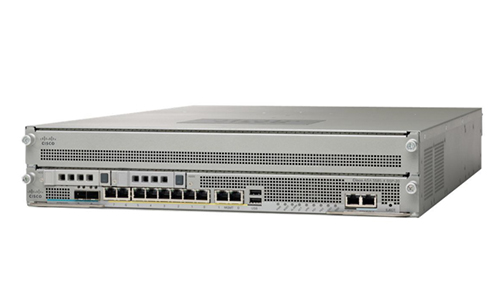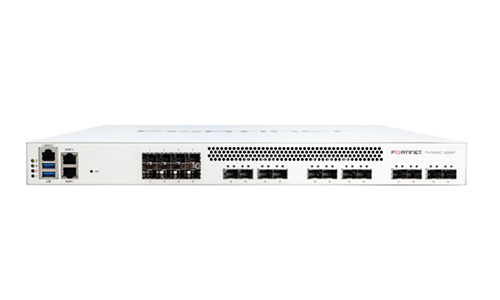What is a firewall?
A firewall in the classic sense is a security device in networks that monitors incoming and outgoing data traffic and, based on predefined security rules, sorts out data and access attempts that are classified as a threat. You can think of a classic firewall as a kind of bouncer that decides whether a guest may enter or not. Behind these decision-making processes, however, lie complex rules and default settings to clearly define whether an access or data packet represents a threat or is possibly a false alarm. A firewall is particularly indispensable when working with sensitive and valuable data, such as in companies, government institutions or in banking. However, firewalls are also useful in smaller network environments in order to detect potential cyber threats as early as possible and protect users before danger can arise.
What types of firewalls are there, how do they work and what makes them different?
Packet filter firewall: Classic and simple, packet filter firewalls filter incoming and outgoing data packets and decide whether there is a threat or not based on the access IP address, port and protocol. Packet filter firewalls are often installed on common routers or run on inexpensive firewall hardware devices. The rules used for filtering are simple. Disadvantage: This form of protection can be quickly circumvented by attackers disguising themselves as legitimate, cannot track who has carried out a potential attack and does not offer any other complex analyses. However, these firewalls are usually sufficient for home use.
Stateful inspection firewall (dynamic packet inspection): These firewalls are an extended form of packet filter firewalls and therefore offer more functions and more protection. It differs fundamentally in that it checks the status and context of the incoming request and thus adds a further level of security. Such stateful inspection firewalls are generally dependent on more complex devices, consume more computing power and are therefore useful for corporate contexts rather than home use.
Proxy firewall (application layer firewall): In addition to the advantages of the stateful inspection firewall, application layer firewalls offer the function of checking the content of network packets. Furthermore, an independent connection to the target system is established and the data is not simply passed on. This means that the source and target networks do not communicate directly with each other and an additional level of security is created. In this case, continuous information may only contain a fraction of the data originally sent. Unlike lower security levels, proxy firewalls often function as a separate utility on the target device. An application layer firewall must be accurately and precisely tuned and constantly updated to prevent false blocking and is more expensive due to the hardware requirements. They are specifically suitable for companies with high security requirements, banks and government organizations.
Next-generation firewalls (NGFW): These modern firewalls combine the advantages of packet filtering and stateful inspection firewalls and also offer deep packet inspection and intrusion prevention - i.e. protection against unauthorized access directly to the network. NGFWs are able to learn protection patterns for future threats and adapt their security standards to changing requirements. In the corporate context, next-gen firewalls are now considered standard and are also suitable for cloud hosters and larger networks. Despite the high resource intensity and expensive purchase price, the security features outweigh the costs.
Cloud-based firewall (Firewall-as-a-Service, FWaaS): Like other “as-a-Service” applications, cloud-based firewalls are also hosted externally and offered by service providers as packaged services. This makes them easily scalable and low-maintenance, as they are not located in-house. Centrally regulated firewall-as-a-service solutions are also suitable for companies with multiple locations. It also offers start-ups and small companies, for example, the opportunity to secure their networks without having to invest in their own hardware. However, dependence on the hoster means that flexibility and latency may be lacking.
Virtual firewall: This form of firewall is mostly used for software-defined networks and runs for virtual applications in private or public clouds. It is provided to monitor and protect data traffic in physical and virtual networks.
H2: When should a firewall be implemented and does it offer me reliable protection?


When should a firewall be implemented and does it offer me reliable protection?
Firewalls are designed to protect against unauthorized access from external networks, regardless of their size and functionality. In times of increasing numbers of successful and attempted cyber-attacks, reliable network protection is more important than ever. These attacks not only affect institutions with sensitive data such as government organizations, banks or hospitals, but also small and medium-sized companies. The attackers take a targeted approach, exploit gaps in security systems and often attack undetected. Tracing and reporting these attacks is often difficult because the security levels are inadequate. In 2024 alone, the financial damage caused by cybercrime to German companies will amount to around 267 million euros, almost 29% more than in 2022. Firewalls certainly do not offer 100% protection against successful attacks, but most threats can be detected and averted in good time with well-established protection. When it comes to cyber security, it is therefore better to take precautions than to be left with the damage.
It is a good idea to analyze your own data vulnerability and set up network security accordingly. If the company works with a small amount of sensitive data, a different level of protection is required than for a company with potentially valuable data. Nevertheless, neither the size of the company nor the type of data is an indicator of vulnerability. Anyone can potentially be at risk.
Reliable security solutions for every use case - tips for successful network protection
Needs analysis: What level of firewall and protection software is suitable for my company? A firewall-as-a-service may be a good solution if the costs of an on-premise solution would exceed the benefits. In this case, it is worth comparing and seeking detailed advice to find the perfect package. Companies that handle sensitive data should not skimp on cyber protection. High-quality firewall solutions such as those from Cisco or Fortinet offer extensive protection and scalability.
Advice: Cyber security should not be left to chance. In-depth advice and extensive information can help to find the right security solution for the user.
Software or hardware: The decision between software or hardware firewalls is certainly a question of budget in many companies. Software is often cheaper than hardware and can be easily scaled through subscription models. They are easy to implement and have low maintenance costs, as monitoring is usually covered by the hoster. If you need reliable protection in a large deployment environment, a hardware firewall is a good choice. Even if the maintenance and acquisition costs are much higher than for software products, hardware firewalls offer undeniable advantages. They are powerful and can also process large volumes of traffic quickly. In addition, they can cover the entire network, depending on scaling.
As experts in sustainable IT hardware, we are happy to assist you with the purchase of your firewalls. In addition to a large selection of new products from leading brands such as Cisco, Fortinet and Palo Alto, you will also find refurbished security solutions in our store. Do you need support? Our sales team will be happy to help you with any questions or requests.
